Every now and again a horror story pops up on the internet about an author who has out of the blue received a demand for a huge sum of money for having quoted a song lyric in a book. British indie author Jonathan Westwood, who describes himself as “a recovering lawyer”, shares some helpful and interesting perspectives on this very grey area. (Just checked that I'm allowed to say “Out of the Blue”, as that's the title of a Roxy Music song!) Over to Jonathan…
I only want to see you laughing in the purple rain.
That’s what the t-shirt I’m wearing says. It’s also, of course, a line from Prince’s song “Purple Rain”.
My t-shirt is not official Prince merchandise. In the days after Prince’s death, some enterprising soul designed it, advertised it and sold it for profit. As far as I’m aware that person is not currently serving a spell at Her Majesty’s pleasure. But according to accepted wisdom in literary circles, I’ve committed an unspeakable heresy by using that line of lyric without permission and/or paying Prince’s estate a licence fee.
Well, like Prince said in the intro to “Let’s Go Crazy”, “I’m here to tell you: there’s something else.”
When someone on the internet pontificates about legal matters without knowing what they’re talking about, they’ll often caveat their comments with the unfortunate acronym IANAL – I Am Not A Lawyer. I can’t hide behind IANAL because I spent 22 years studying, training and practicing as a solicitor. So in my case it’s IANALA – I Am Not A Lawyer Anymore.
As such, this post does not represent formal legal advice and if you’re daft enough to rely on its content, on your own head be it.
Copyright Protection of Lyrics
In most countries, most artistic works – including most song lyrics – are protected by copyright. Thus, for a period of time, usually the artist’s life plus 50-100 years, the artist has the exclusive right to determine how and when her art is used or copied.
Song titles, conversely, don’t qualify for copyright protection, so if you want to call your next novel Bohemian Rhapsody to cash in on that lucrative Václav Havel/George Gershwin/Freddie Mercury fan base, knock yourself out.
But copyright isn’t absolute. There are exceptions when the use of a copyrighted work doesn’t need the artist’s consent – these often include things like use in education and reportage.
Copyright Exceptions
The relevant exception for authors is called “fair use” (in the US) or “fair dealing” (in the UK and most Commonwealth countries). The two concepts operate differently but, as a broad generalisation, they allow you to use some – a “fair” amount – of a copyrighted work without consent in certain circumstances.
In the UK, the extract used must not constitute a “substantial part” of the original. If, for example, I want to illustrate a point by quoting 300 words from a copyrighted 75,000-word book, that will usually qualify as fair dealing. Usually, but not always: nebulous concepts like “fair” and “substantial” are what keep lawyers fat and gout-ridden.
A lyric is usually quite short, so it wouldn’t take the use of many words to rub up against the “substantial part” test.
When is a Lyric Not a Lyric?
But it has to be more than just a couple of words or a phrase. If one of my characters talks of “all my troubles” and another says that someone “died in the church”, have I ripped off Sir Paul McCartney’s lyrics for “Yesterday” and “Eleanor Rigby”? Or am I just using simple, common or garden phrases? The answer’s the latter, of course.
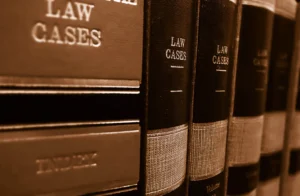
In that case…
I don’t believe the use of one line of a lyric will ordinarily be considered any more unfair than extracting 300 words from a book. Credit your source – as you would a book excerpt – and I believe you’ll stay on the right side of the fair dealing line the vast bulk of the time.
I’m not suggesting pilfering Freddie Mercury’s whole lyric for the book Bohemian Rhapsody. But I’m confident the character Bismillah the ballroom dancer could ask, “Scaramouche, Scaramouche: will you do the fandango?”
Practising What I Preach
And I’m going to put my money where my mouth is: my forthcoming novel Something Changed features a character whose primary source of emotional vocabulary is song lyrics. He speaks lines from dozens of songs. And where he uses one line, I’m neither seeking consent nor paying a licence fee. I’ll acknowledge every song used, and their composers, and link to a Spotify playlist where my reader can listen to the songs while the writers earn a royalty.
On the couple of occasions my character uses more than one line from any given song, I’m seeking permission and unless it’s silly money I’ll pay a licence fee. If I can’t get permission or can’t afford the licence fee, I’ll change my text. If you’re thinking of using lyrics in your book and want a free copy of the clearance request letter I’ve been using, please visit jonathanwestwood.com/copyright-clearance-letter.
Despite my legal background, I don’t want to end up in court. Especially as I know that, in legal disputes, the side with the deepest pockets usually prevails.
If you have an army of lawyers paid by a music publisher threatening all manner of unpleasant outcomes if their client isn’t given money going up against an author whose sales figures put her below the poverty line, The Suits will invariably browbeat the author into submission. Outside legal practice, this is called bullying.
If you doubt music companies would behave like this, remember that in recent years they’ve sold 22 million CDs that infected buyers’ computers with malware and sued or threatened to sue 35,000 individuals, including the homeless, children and dead octogenarians.
Meanwhile, music publisher Warner/Chappell coerced people into giving it £1million each year to use “Happy Birthday To You” on the basis of a non-existent copyright it claimed to own. Warners had the deepest pockets with which to instruct the nastiest lawyers to bully lesser mortals for 25 years – until documentarian Jen Nelson challenged Warners’ demand that she must pay $1,500 to use the song in a film she was making. After a long legal battle Warners conceded, accepted the song is in the public domain and was forced to pay $14 million to people it had extorted.
But I’ve spent hours trawling legal databases and I’ve asked several other lawyers. I can’t find any record of this point ever having been litigated in England and Wales and every lawyer I’ve spoken to on each side of the Atlantic has agreed with my view that the use of a single line of a song lyric will not ordinarily amount to actionable copyright infringement.
“The Law is An Ass”
Something else to be borne in mind is that the law in this area is a total ass. The main act governing copyright in the UK is now 29 years old. I was sitting my GCSEs when it went through Parliament and most of the MPs responsible for the act are now dead.
Most importantly, there was no internet in 1988. There are now more than 1 billion websites and about 2.5billion social media accounts. A very large number of them infringe – deliberately or otherwise – the intellectual property rights of other people.
That pretty picture you liked and posted to your Twitter/Facebook/Instagram/Pinterest account(s) or used to illustrate a blog post? Well, the copyright in that photo almost certainly belongs to someone and, under a strict interpretation of the law, you infringed his copyright when you copied and published it without first getting his permission and/or paying him a licence.
In the Land Before Digital
In 1988 there was no YouTube, whose content is, by its founders’ own admission, 80% copyright-infringing material.
Google, YouTube (bought by Google in 2006) and the social networks have employed and enabled systematic copyright infringement on an industrial scale to build their businesses.
Search Google for the phrase “I only want to see you laughing in the purple rain” and there are 17,100 results. A search for “Purple Rain lyrics” brings back 487,000 results. Despite Prince having been an active policer of his music on the internet, a search of YouTube for “Purple Rain” yields a staggering 602,000 results.
If music companies policed their and their songwriters’ copyrights strictly and uniformly, the courts would be jammed with literally hundreds of millions of claims against YouTube and Facebook. The judicial system would collapse under the strain.
The reason that isn’t happening is because YouTube and Facebook have been allowed to grow at rate of knots to such a size that they have more money in their petty cash tin than all the music companies combined have in their bank accounts. So music companies go after the softer targets who can’t, won’t or don’t fight back.
The Truth about Lawyers
Let me shatter an illusion: sometimes lawyers don’t tell the truth, the whole truth and nothing but the truth.
(I know: I couldn’t believe it either.) When it suits the purposes of the client paying them several hundred pounds an hour, lawyers won’t exactly lie but they will deliberately allow other people to draw inaccurate conclusions. And many lawyers will happily litigate specious claims as long as their client keeps paying their bills. (That’s called barratry – a criminal offence in the UK until 1967 and still illegal in the US.)
This is why literary circles run a mile from the use of song lyrics.
Over the years, just like Warners with “Happy Birthday To You”, music publishers’ lawyers have consistently threatened book publishers with litigation. And the book publishers haven’t had the money or the stomach to stare the lawyers out.
In fairness, this is a grey area with no hard and fast rules – but that’s in part because no book publisher or author has ever apparently litigated the point.
Don't Sue Me…
I don’t want to litigate it myself but I’ve never been dissuaded from doing something because people tell me, in the words of Bruce Hornsby and the Range, “That’s just the way it is.”
If you don’t want to risk receiving a lawyer’s letter or a claim form, then don’t use any lyrics at all. That’s the risk-free approach. But if you’re considering using lyrics in your book, ask yourself two questions:
- Will your use of that lyric cause the copyright owner to lose revenue?
- Is the amount of the lyric used reasonable and appropriate?
If the answer to 1 is no and the answer to 2 is yes, then your use of the lyric is highly likely to be considered fair.
And with that I’ll say, “Goodbye, everybody. I’ve got to go. Got to leave you all behind and face the truth.”
Admit it: you really want to read the novel Bohemian Rhapsody, don’t you…?
OVER TO YOU Have you ever had any legal issues as a result of using song lyrics or titles, and what was the net result? We'd love to hear about your experiences, if you're willing to share them
Thinking of quoting song lyrics in you #selfpub book? Read this advice first! Share on XOTHER HELPFUL POSTS ABOUT LEGAL ISSUES

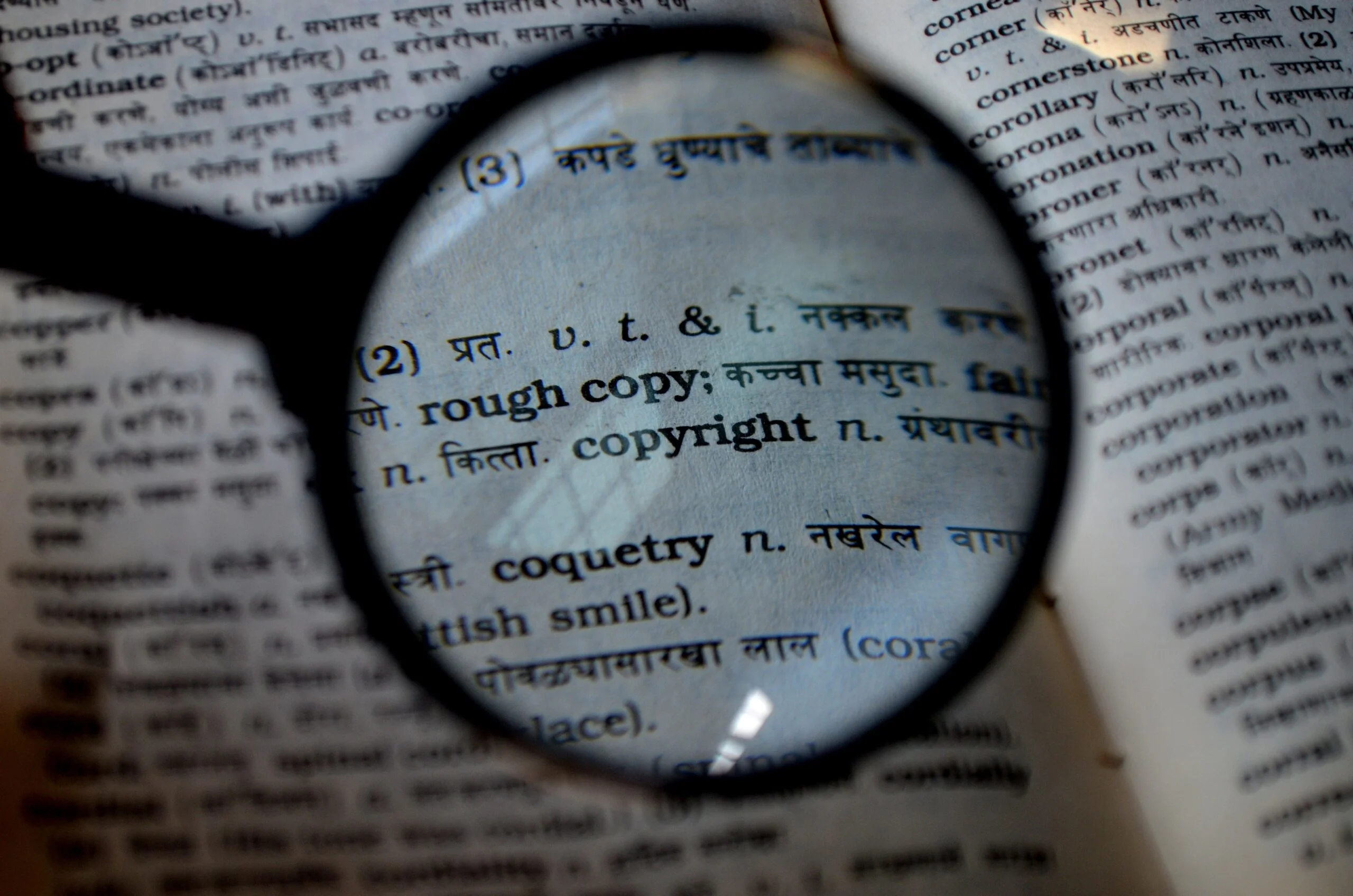
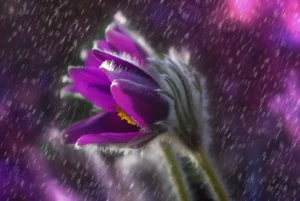
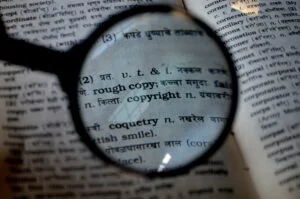
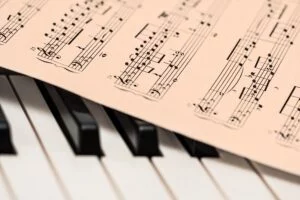
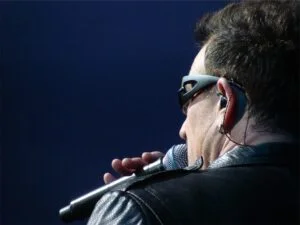



This article is helpful. Very well written, and hilarious. I’m now confident that Willie Nelson isn’t going to come after me for using a line in one of his songs in my first novel. Also, I’ll follow your blog, because I want to read more of your stuff.
Thanks for this very informative article. Is there any equivalent to ‘prior art’ in copyright? In other words, if you can show that the line or lines you’ve quoted were in general circulation before the use you’re quoting from, would this disqualify any action? Eg, ‘Absence makes the heart grow fonder’ is a line from an old Dean Martin song, but it has been in general use as an expression from way before that. Would you risk any problem quoting it?
Hello! I enjoyed your article. A friend sent it to me, because I am quoting 2 lines of lyrics in a series of poems about different musicians.
I was wondering what the name of your book about the character that thinks/speaks in lyrics? Thanks in advance.
I so appreciate your sharing this fantastic resource with the public. Thank you!
Awesome and informative article, and thank you.
But I am still curious about my specific question that did not seem clarified, unless I missed it.
That question is whether or not it is still an infringement on the artist if you give credit to the artist in regard to the lyrics used. It would not seem like the writer is stealing the words if he/she tells the reader which real artist wrote those words because the writer would not be claiming the words as their own.
I would love to get clarification on this since my new novel will be releasing soon, and it has many song lyrics sang by characters or heard on radios, but the artist has been mentioned every time this happens.
Any feedback would be great. Thanks again!
I’m interested n publishing a songbook of various musical styles for market/pop rock hip-hop-r&b country,reggae ,etc. The songbook once purchased can be used to help others create songs. Etc. Of course the book of songs will be copy-righted. Book can be used as deem fit? How practical us this in today’s open market? Love to hear any feed-back
Hi Jonathan, I asked a question about quoting a few lines of song lyrics on the ALLi FB group, and got an instant reply with a link to this article. Thank you, this helps quite a bit. The “two questions” you suggest asking ourselves is useful. I am writing a non-fiction book exploring the spiritual–particularly biblical–implications of humanity destroying the earth. If I quote a few lines of a song at the beginning of a chapter, I am suggesting that the poetry within the song is meaningful and profound, as well as related to the central questions/ themes of my book. I would hope that the music publishers would view this as “good publicity” for the artists and their songs. I think I will contact the music publishers, and if I do not hear back from them after three attempts to gain permission, I will go ahead and consider it as fair use, based on (1) me referencing the artist and song (2) your two questions, as I do not believe my use would be anything but positive. Thank you SO much for this post!
Thanks for this, Johnathan. I know I’m almost two years behind the post, but I’m just seeing it now. A publisher is releasing a book of mine this year, Forgotten Kids, and it takes place in the post-grunge ear of music in the late 90s/early-2000s. The main character heavily relies on his music and quotes many lyrics throughout, and like you, I have a Spotify playlist made for it. The only band I’m worried about is Tool. They aren’t on Spotify, and there’s probably a reason behind that. However, the lyrics relate to the situation, and the character quotes or sings a line from them. Each section, however, starts off with a quote from the big grunge 5 (Nirvana, STP, Alice in Chains, Soundgarden, and Pearl Jam, but it goes something like, “I’m still alive,” -Pearl Jam. If you do get this, do you have any updates to what happened with your comparable story? Any advice?
I also released a book last year that included lyrics, and a Spotify playlist. They songs were used as clues in a criminal’s cat an mouse game with his rival detective. I’m flirting more with copyright laws on that one though, but everything is quoted. Now I’m a little worried…
Jonathan, Thank you for this article. I recently self-published a book using the refrain lyrics to “All You Need I Love” by the Beatles. Because I’m a novice and didn’t know better, I didn’t see permission, as I didn’t realize I needed it. Now that the book is published, I am nervous about the repercussions. Is there a way to retroactively protect myself? Thank you for your time!
I’m no lawyer, but song titles (at least in the US) are generally not subject to copyright protection—you can’t copyright an idea, only a particular expression of that idea.
Hi Jonathan, Thanks very much for this. I too am a recovering attorney, although I never technically practiced because I realized after graduation that the whole profession would suck the life out of me. Anyway, I’m an indie now and have a question about older songs. In my next series I’d like to include the lyrics to the Scottish folk song, “Loch Lomond”. I know the original author is unknown and that it’s been done several times in the 20th century. Is there a website I can check or somewhere I can go (I just moved to Scotland from California) to find out if I can quote the lyrics? Or if there are versions I can quote and others I cannot depending on the artist’s adaptation? Thanks again.
Imslp.org and cpdl.org are both good resources for public domain music. Loch Lomond is listed as public domain on both sites. It is also very old (the poem was written in the 1700’s and the song was first published in the 1800’s) and while the author of the poem is known, the composer is not. It is now considered a traditional Scottish folk song. Most traditional folk songs are considered public domain, which is why the supposed copyright of the birthday song was so egregious. Hope this helps!
Huge thanks for the article, Jonathon! It’s been a great help, however, I have a question that I’ve so far been unable to find an answer for, so wondered if you could spread any light on the subject?
I’ve used a few lines from a song that is recognised around the world, but because it’s being sung by a seven-year-old girl, who’s misheard practically every word of the song so that the actual lyrics bear very little resemblance to the original, would I still need to gain permission to use it?
I would appreciate any advice you could offer in relation to this
Thanks for the article, Jonathan! Can we use song lyrics in marketing materials such as an e-blast? And if we credit the artist?
I have been searching everywhere for advice on this and using song lyrics as a quote in dialogue in a book where it’s made abundantly clear that you aren’t even implying that they’re work of your own! Glad I found this post, thank you!
[…] https://selfpublishingadvice.org/the-legal-use-of-song-lyrics-in-books-from-the-persepective-of-an-in… […]
[…] a lyric will ordinarily be considered any more unfair than extracting 300 words from a book.” Here’s why. And here’s the frosting on the […]
Brilliant. Thanks for this, Jonathan. Really helpful as I have a number of song lyrics in my almost finished novel. I’d already cut most of them down to one or two lines but will go over with a fine toothcomb. 🙂
One problem I’ve had is just not hearing back, in which case I’ve kept the record of me having sought copyright permission and continued as per your two last questions.
Brilliant – I’ve been struggling to know what to do with the Bee Gees lyrics in my (as yet unpublished) sci-fi/ fantasy novel for the last 12 years.
But can I use Barry, Robin & the other one as characters?
Think I might risk it – I’ll be dead by the time it comes to court anyway!
It all depends if Barry plans on ‘Staying alive”
Great post – have shared! Thank you Jonathan.
Thank you for this. Brilliant! So clear that I can’t believe you were ever a lawyer! (I’m allowed to make lawyer jokes because my daughter is one). One problem I’ve had is just not hearing back, in which case I’ve kept the record of me having sought copyright permission and continued as per your two last questions.
I didn’t know that song titles weren’t copyrighted – am off to write a poem … Born To Be Wild
Hi, Jean. I can assure you that you are not alone in your disbelief that I ever practiced law… Not hearing back isn’t unusual. If you can show you tried to obtain consent, then it would be even harder for the publisher to try it on because it would be their own ineptitude at fault in those circumstances.